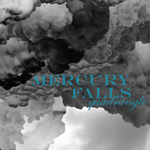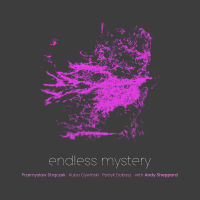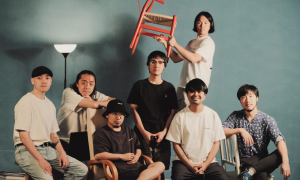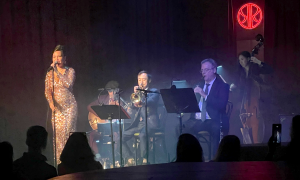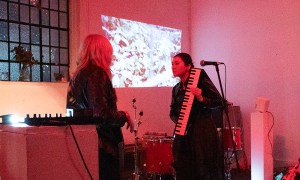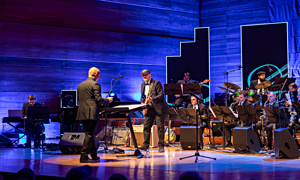Home » Jazz Articles » Live Review » Vision Festival 2010: Day 7, June 29, 2010
Vision Festival 2010: Day 7, June 29, 2010
Charles Gayle, William Parker, Muhammad Ali, Lafayette Gilchrist, Gerald Cleaver, Vladimir Tarasov
Vision Festival
Abrons Arts Center
New York City
29 June 2010
For the last evening of the Fifteenth Vision Festival at the Abrons Arts Center, the theme was of celebration for the late Rashied Ali. Ali, who died in August 2009, will always be best known as the drummer John Coltrane turned to when he was searching for new directions after the dissolution of his classic quartet. But he was active for more than four decades following Trane's death. Not only a band leader, he also ran his own imprint, Survival Records, and managed his own creative outlet, Ali's Alley, during the New York loft era. Revisited tonight was the trio By Any Means with Charles Gayle and William Parker of which the drummer was an important part, as well as drum tribute to Ali by five percussionists.
Station # 9969

Throughout the Festival, dance events by the troupe choreographed by Jason Jordan had been scattered across the formal and informal performance spaces of the Abrons complex. Finally they made it to the main hall to allow everyone chance to see what they were missing. Assembled to accompany the movement was Jason Kao Hwang on violin, Connie Crothers on piano and Gerald Cleaver behind the trapset. As a spectacle the dance enthralled: orange yellow dancers spotlit against a blue background. In a seemingly predetermined arrangement the ten dancers flowed across the stage in slow motion, as a body and in pairs. It was an extremely impressive piece—some of most captivating dance I have witnessed at the Vision Festivals over the past few years, reminiscent in its early ensemble sections of Ballet Rambert. All the musicians labored in relative shade to the rear, indicative of where the attention should be focused. Although the music slightly became slightly subservient to the dance, it would have happily stood on its own merits.
By Any Means
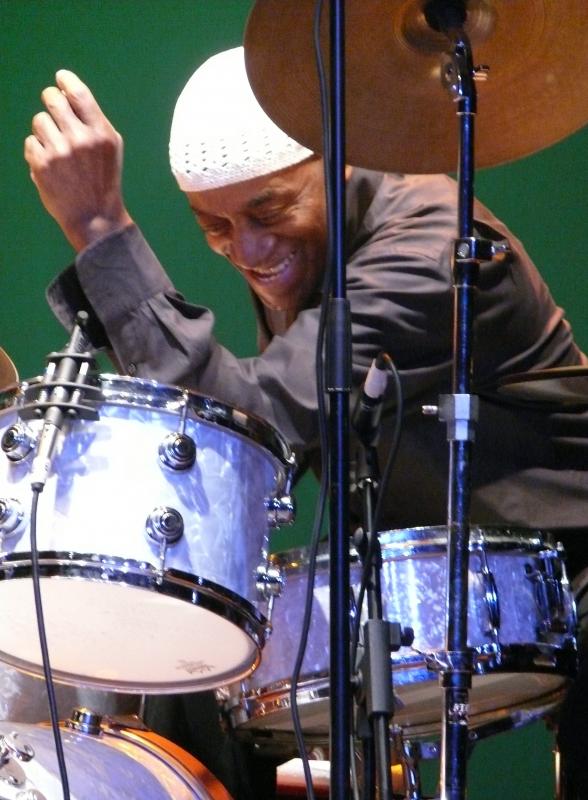 As part of the tribute to drummer Rashied Ali, the collective he named, By Any Means, with saxophonist Charles Gayle and bassist William Parker was the most eagerly awaited act of the final evening at the Abrons Arts Center. Their 1991 concert in Berlin, before they were monikered, documented as Touchin' On Trane (FMP, 1993) is renowned as one of the few free jazz albums to receive five stars in the Penguin Guide To Jazz. There was no need to search far for a replacement. Rashied's younger brother Muhammad was also a drummer of note, having helmed the Center of the World Quartet with tenor saxophonist Frank Wright and bassist Alan Silva, although he has gigged less frequently of late, and it was he who filled the drum chair. They blasted through 40-minutes of full on fire music, easily matching previous shows I have heard from the group.
As part of the tribute to drummer Rashied Ali, the collective he named, By Any Means, with saxophonist Charles Gayle and bassist William Parker was the most eagerly awaited act of the final evening at the Abrons Arts Center. Their 1991 concert in Berlin, before they were monikered, documented as Touchin' On Trane (FMP, 1993) is renowned as one of the few free jazz albums to receive five stars in the Penguin Guide To Jazz. There was no need to search far for a replacement. Rashied's younger brother Muhammad was also a drummer of note, having helmed the Center of the World Quartet with tenor saxophonist Frank Wright and bassist Alan Silva, although he has gigged less frequently of late, and it was he who filled the drum chair. They blasted through 40-minutes of full on fire music, easily matching previous shows I have heard from the group.Any concerns that the drummer would struggle to fill his brother's shoes proved groundless. He created an all encompassing rhythmic foundation, demonstrating great awareness of light and shade, and propelled the band with combustive energy, evidenced best partway through the first piece. Parker's bass was a study in repeating riffs, gradually getting quieter and quieter, until Ali yelled out "Anybody ever heard of the freedom train?," then launched a crashing fusillade of percussion, which energized the trio. Gayle returned on tenor saxophone, starting off with a sustained train whistle, then building into the extreme upper partials, shaking his horn up and down and moving from side to side. Ali maintained his roiling drum barrage, punctuated with continued hollers.
 Gayle also excelled on the second improvisation, a free ballad opening with sanctified tenor, arco bass and Ali on mallets. Straying into the falsetto register, the saxophonist belayed an incendiary stream of yelps and split tones, matched by the bassist's high wavering bowing. Gayle touched on abstracted melodic material, the harmonies perhaps referencing some unnamed standard. Parker's arco solo received quiet backing from Ali, until he crashed his cymbals with such unpredictable ferocity it seemed to make Parker jump and certainly startled the audience.
Gayle also excelled on the second improvisation, a free ballad opening with sanctified tenor, arco bass and Ali on mallets. Straying into the falsetto register, the saxophonist belayed an incendiary stream of yelps and split tones, matched by the bassist's high wavering bowing. Gayle touched on abstracted melodic material, the harmonies perhaps referencing some unnamed standard. Parker's arco solo received quiet backing from Ali, until he crashed his cymbals with such unpredictable ferocity it seemed to make Parker jump and certainly startled the audience.At the end they made to leave the stage, but such were the entreaties from the assembled throng that they returned for a brief encore, with Gayle seated at the piano, essaying a fractured stride, until he finished on a repeated understatedly lyrical phrase which furnished a fitting conclusion. A standing ovation was guaranteed, but nevertheless merited.
Lafayette Gilchrist's Inside Out Trio
Baltimore pianist Lafayette Gilchrist last graced the Vision Festival in 2006[?] on the emerging artists roster in the company of drummer Hamid Drake. Four years on and he had been deservedly promoted to the main program with his Inside Out Trio. Gilchrist may be most well known as part of quartet and octet settings under the leadership of saxophonist David Murray, but has also gigged as part of William Parker's Inside Songs of Curtis Mayfield assemblage.
Alone at the piano, Gilchrist initially drew romantic strains from his rippling keys, then counted in bassist Michael Formanek and Eric Kennedy on drums. A fast stepping theme expanded into the exciting trio interplay based on listening and interaction which characterized their set. Altogether they moved through four composed sections in fifty-minutes, opening with a short suite of three tunes: "Breakout," "Spontaneous Combustion" and "Waves" preceded a ballad called "Safe Passage." From the infectiously finger snapping to the outright free, they shifted gears as a telepathic unit, inside out you could say, straddling that borderline with aplomb.
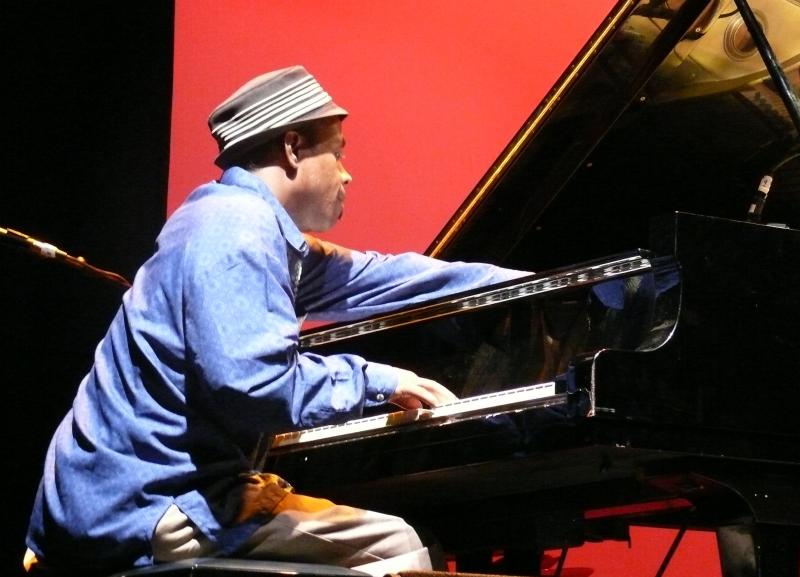
Gilchrist displayed a more rhythmic and less florid bent than his last Vision outing, provoking thoughts of Matthew Shipp with his thunderous chording and Dave Burrellin his staggered dissonance, blending well with off kilter bass and drum syncopation. At times, often within the same number, he also ventured into invigorating free form territory, drawing suitably energetic arco support from Formanek and clattering drums from Kennedy.
Loose limbed, almost languid, the drummer nonetheless whipped up a whirling maelstrom, dropping bombs while simultaneously keeping time. Frequent drum rolls distinguished his playing, though he resorted to cymbal coloration during rubato passages. Formanek appeared impassive throughout, belying his nimble fingerwork and rapidfire solos. Like Kennedy he also added emphasis to the more dissonant sections, contributing his own depth charge equivalents in his deep resonant notes. A simpatico partner, he moved from doubling Gilchrists left hand figures to open improvisation in terms of space and texture when his cello-register scrapings came to the fore.
Another very good set, which was a bonus in that it was an unexpected pleasure, and one which left many listeners hoping for a forthcoming recording from this trio.
Drum Tribute
For the swansong, five percussionists assembled for a drum tribute to the late Rashied Ali. There were several changes from the line up in the program, with Nasheet Waits unavailable and Hamid Drake absent at Fred Anderson's funeral. But instead we had Warren Smith joining Michael Wimberly, Brahim Frigbane, Vladimir Tarasov, and Gerald Cleaver strung across the stage.
Like Reggie Nicholson's percussion based set earlier in the week, this was not an out and out drumfest. Melodic duties here were taken on initially by Frigbane, who sang in plaintive Arabic style, then took up his oud to initiate a gentle foot tapping cadence. Wimberly augmented the rhythm on big gourd with a tabla like sound, Tarasov added shakers, Cleaver struck wood on tambourine, Smith ricocheted off his drum rims, all embellishing Frigbane's original groove.

One notable passage involved a piledriving beat led by Cleaver who was simultaneously chanting "Rashied." What followed was the sort of free tumult that might have been expected as the default mode. Wimberly ousted Tarasov from his kit and thrashed hell for leather. Cleaver joined the fray while Smith colored on cymbals, Tarasov tapped a hand drum, and Frigbane sat out the storm. They all coalesced around the four note "A Love Supreme" riff, played using pitches of different drums. Though nobody intoned the words they were in the air and evoked a suitably reverential atmosphere.
Premature applause as they were in the process of transition into another section brought the set to an early close, but as the concluding event there was no time pressure, so for once there was an encore. This time it was a two-minute group thrash. Short but sweet. And that was the Vision Festival for another year, for me at any rate. An after festival party was scheduled the following night at the Poisson Rouge, but for many of the out of town visitors, this was their final show as well.
Festival Wrap Up
Although tinged with sadness, this year's Festival nonetheless provided more than its share of stellar performances. Shining brightest were the sets by Darius Jones, William Parker's In Order To Survive, Muhal Richard Abrams incredible and emotionally charged solo, David S. Ware's new trio, Dave Burrell's Peace Out Trio, the duo of Wadada Leo Smith and Gunter "Baby" Sommer, as well as By Any Means this night. However these were merely the most luminous among the constellations and the general standard was high, with very few missteps. I'm hoping that the ongoing recession and empty seats at some shows doesn't interfere with what is an essential date in the NYC, and indeed world, jazz calendar.
Photo Credit
All Photos: John Sharpe
Prologue | Day 1 | Day 2 | Day 3 | Day 4 | Day 5 | Day 6 | Day 7
Tags
Vision Festival
Live Reviews
John Sharpe
United States
Rashied Ali
John Coltrane
Charles Gayle
William Parker
Jason Kao Hwang
Connie Crothers
Gerald Cleaver
Frank Wright
Alan Silva
Lafayette Gilchrist
Hamid Drake
David Murray
Matthew Shipp
dave burrell
Fred Anderson
Vladimir Tarasov
PREVIOUS / NEXT
Support All About Jazz
 All About Jazz has been a pillar of jazz since 1995, championing it as an art form and, more importantly, supporting the musicians who make it. Our enduring commitment has made "AAJ" one of the most culturally important websites of its kind, read by hundreds of thousands of fans, musicians and industry figures every month.
All About Jazz has been a pillar of jazz since 1995, championing it as an art form and, more importantly, supporting the musicians who make it. Our enduring commitment has made "AAJ" one of the most culturally important websites of its kind, read by hundreds of thousands of fans, musicians and industry figures every month.



